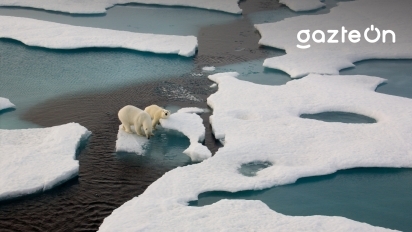Sea and Climate Change
<p> <strong>Fermin Alvarez Agoues</strong>, 30 years old, from Zarautz, graduate in Geology from the University of the Basque Country, Master in Marine Environment and Resources (MER). Currently a PhD candidate at Trinity College Dublin, studying sea level changes in the Atlantic Ocean.</p>

He grew up on the coast, seeing the sea every day, and he has seen the shore change since infancy. He has always had that passion or curiosity for the sea, by nature. That is the reason why he studied geology, that is why he specialized in marine environment and that is why he is studying climate change and the changes in sea level.
Research Fundamentals
He analyzes the sediments of the marshes, analyzing the different chemical / biological characteristics of the fine sediments (silt) of the marshes to reconstruct the history of the sea level of the last decades. He then analyzes, at the local level, the influence of climate change on sea level.
He has done fieldwork in marshlands on the Irish coast and is now getting the first results. He has started with the first reconstructions in the eastern Atlantic. Once he completes his work there, he will begin to work on the west coast of the North Atlantic (US / Canada).
According to Fermín, nowadays the rise in sea level is recognized as a reality in society and we are aware that this is going to have consequences both globally and in us. Through research, it is possible to understand the rise in sea level that is going to occur at the local level. In fact, the change in sea level is not homogeneous, it is different in each region, in each municipality. The damages and the measures to be adopted will be different, therefore, it is important to understand these changes, predict the rise in sea level and establish the appropriate adaptation measures.
Think global, act local
In Paris, a series of measures were defined that were a first step to face this crisis. However, the reality is that the measures and conditions adopted have not been met, science has not been listened to much. Now, in general, climate change and its consequences are more integrated. All countries are suffering the consequences and it is necessary to set the appropriate measures and the timelines to carry out these measures. This is very important.
The IPCC report clearly recognizes human influence on climate change for the first time. The IPCC is important because most of the decisions to be made at COP26 will depend on this report. A transition will be defined at COP26 that must begin at the local level. Measures to tackle climate change require local studies and local measures. In the case of the Basque Country, we are no exception, and it will also influence us. A local response is required. For this, Fermín believes that scientists must be listened to, since political decisions and science often do not go hand in hand. A sustainable transition is needed, a transformation of the current life model, for which it is necessary to investigate and that the adaptation measures are adapted to the results of these investigations. In addition, it must be communicated so that society knows what the situation is and the steps we must follow. Ultimately, the responsibility is everyone's.

